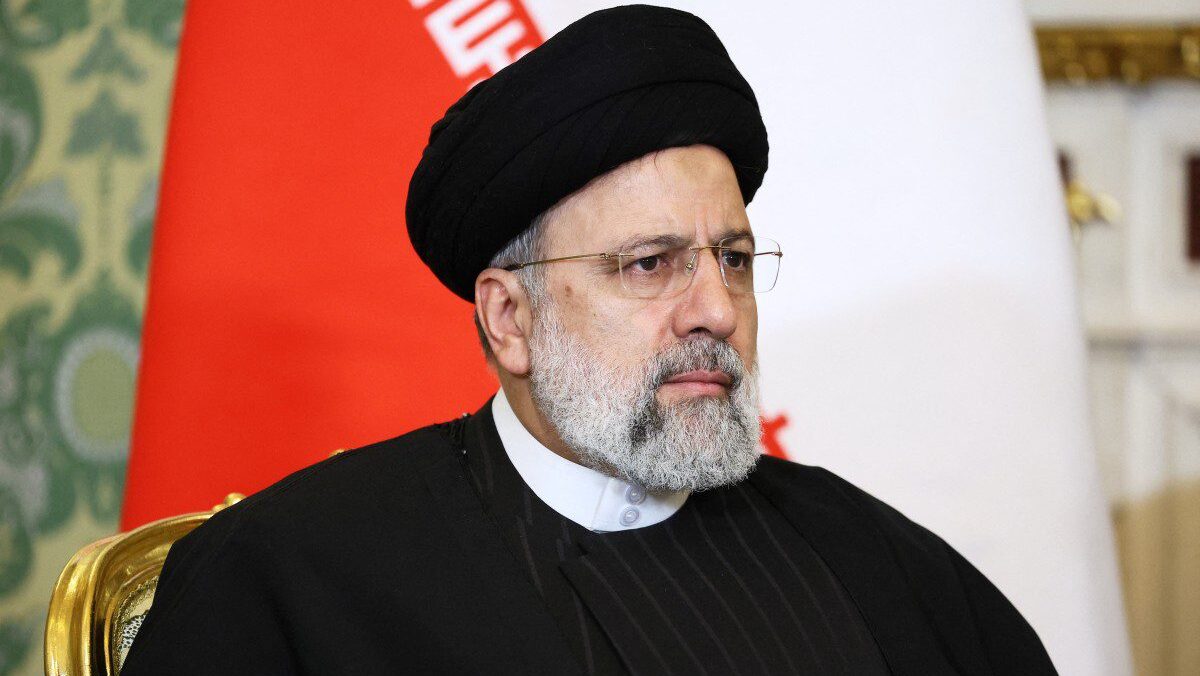
Iran’s President Ebrahim Raisi.
Photo: Sergei BOBYLYOV / POOL / AFP
Ebrahim Raisi, the president of Iran, has died in a helicopter crash, according to state media. Brussels officials have described the crash as “tragic” and have offered their “sincere condolences” and even “solidarity” to the Islamic Republic of Iran, despite Raisi’s role in sentencing thousands of political prisoners to death in the 1980s, which earned him the moniker ‘Butcher of Tehran’.
Raisi was a longstanding close ally of Iranian Supreme Leader Ali Khamenei. As president of the country since 2021, he supported Houthi attacks on international shipping in the Red Sea; backed Iraqi militias attacking and killing American soldiers; and helped Hamas fight its genocidal war against Israel—to list just a few egregious examples.
At home, Raisi oversaw an increased enforcement of the ‘hijab and chastity law,’ under which women face 10 years in jail for “inappropriate” dress. The United Nations recently found that his administration was responsible for the “physical violence” that led to the 2022 death in custody of Mahsa Amini, who had been arrested for allegedly breaking this law. His officials then responded brutally to the nationwide protests her death prompted.
Such was his reputation that in 2019, the U.S. sanctioned Raisi—who had been tipped to take over as Iran’s next supreme leader—citing the events that earned him the title of ‘Butcher’, and a U.N. report on the judicial execution of at least nine children between 2018 and 2019.
Unsurprisingly, the Islamic terrorists of Hamas were upset by the news of the crash, describing Raisi’s death as an “immense loss.” Despite all this, some Western leaders have responded to Raisi’s death with undeserved courtesy.
European Council President Charles Michel said “the EU expresses its sincere condolences for the death of President Raisi and Foreign Minister Abdollahian,” who was also on board the helicopter.
The EU expresses its sincere condolences for the death of President Raisi and Foreign Minister Abdollahian, as well as other members of their delegation and crew in a helicopter accident. Our thoughts go to the families.
— Charles Michel (@CharlesMichel) May 20, 2024
Josep Borrell, the European Union’s highest-ranking diplomat, shared a very similar message online, describing the helicopter crash as “tragic.”
The European Commission’s crisis commissioner, Janez Lenarčič, announced on Twitter/X that the EU was using its emergency satellite service to help locate the helicopter. He signed off his tweet with the tag #EUSolidarity—a stronger political statement than ‘sympathy’. EU foreign affairs chief Borrell, a bitter critic of Israel’s war against Iran-backed Hamas, endorsed the message of solidarity by retweeting it.
Western newspapers were also quick to headline with Israel’s insistence that it wasn’t involved in the incident. Iran’s own media accepted that the crash was an accident, prompting Italy’s Giorgia Meloni to breathe a sigh of relief that Tehran wasn’t pushing “conspiracy theories.” It is worth asking why some in the European media seemed to be doing precisely that, and why Israel was implicated in the first place.
Geert Wilders of the Dutch Freedom Party shared a rather different message online, hoping that there might soon be “freedom for the Iranian people and without an oppressive and barbaric Islamic mullah regime.”
I hope #Iran will soon become a secular state again, with #freedom for the Iranian people and without an oppressive and barbaric Islamic mullah regime.
— Geert Wilders (@geertwilderspvv) May 20, 2024
But there are worries now that Raisi’s death will bring further instability to the region. A new figure to replace the current supreme leader will have to be found. Dominic Waghorn, international affairs editor at Sky News, noted that “there are plenty more where [Raisi] came from and the Supreme Leader is likely to find another hardliner to replace him.”
Yair Lapid, Israel’s head of the opposition, agrees that Iran will now enter “a period of instability.”
For now, five days of mourning have been announced in Iran by Ayatollah Ali Khamenei, who also said Mohammad Mokhber—another close ally of the supreme leader—will take over as interim head of the country’s executive branch. Reuters says that Iran has just 50 days to organise a new presidential election.
